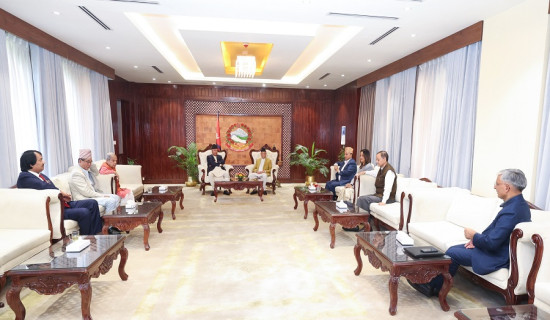- Tuesday, 24 June 2025
Threats To Cyber Security
In today's globalised world of Information Technology, digital literacy is imperative to find, evaluate and communicate information using digital media platform. It is very important to develop new skills and learning models in relation to information and communication technologies. In the contemporary world, all the sectors of the government and the private sector are computerised and digitised.
They make works and operations faster, easier and hassle-free. However, there are also instances in which the digital technologies are misused to carry out financial crimes, cheating, blackmailing, false promises and frauds. New technologies can assist in work performance in a significant way but sometimes they prove to be a bane when people with ill intention try to misuse them. Vital records and information of the government agencies are kept and operated in computer system. Teaching-learning activities in schools and colleges are greatly aided by the blessings of the information technology, more so amid the COVID-19 pandemic during which conducting physical classes was restricted for health safety reasons.
Now there is no sector in the society that is untouched by the digital information technology. This calls for urgency of attaining literacy of digital technology. This objective can be fulfilled by introducing this subject right from the school level curriculum for basic familiarity with the technology that is needed at every step of life. With the proliferation of computers, other digital devices and their networking as well as internet web connectivity, searching and sharing of information has become immensely easier but this also increased risks of information theft and cybercrimes.
Digital methods have been used to hack and steal sensitive and confidential information which put national security and government websites under grave risks. In this context, Prime Minister Pushpa Kamal Dahal Prachanda has said that cybercrime challenges are on surge, and it is essential to apply and enhance cyber security measures to ensure safety. Referring to the rising threats of cybercrimes, the Prime Minister has expressed his grave concerns about national security, sovereignty, political independence and territorial integrity.
Nepal is moving forward in terms of information technology use but when it comes to addressing the issues of cyber security, the existing infrastructures, manpower and technologies we have is certainly not enough, the Prime Minister cautioned while addressing an interaction on "Impact of Modern Information Technology on National Security" held by the National Security Council in the capital the other day. The issue of cyber security is directly related to peace and internal security and the security of geographical borders of the country.
Thus the cyber security is extremely important to safeguard national information as well as personal privacy. The hacking of the information of national and strategic importance and the theft of such information has emerged as critical threat to national security. These cybercrimes are the byproduct of information technology.
The surge of cybercrime in banking sector has also emerged as a serious problem. Stealing user's information such as credentials, credit card number and pins to access victim's bank account has caused terror in the general people and many a time people hesitate to do digital transaction. We frequently come across the news of people's bank account being hacked and their deposited money being stolen.
It is very important to recommend suitable policy and legal guidelines to enhance cyber security and control cybercrime. With the technology comes the issue of cyber security as well. Prime Minister Prachanda said that the government is working to formulate cyber security policy and preparing to table the IT bill in the parliament.

















